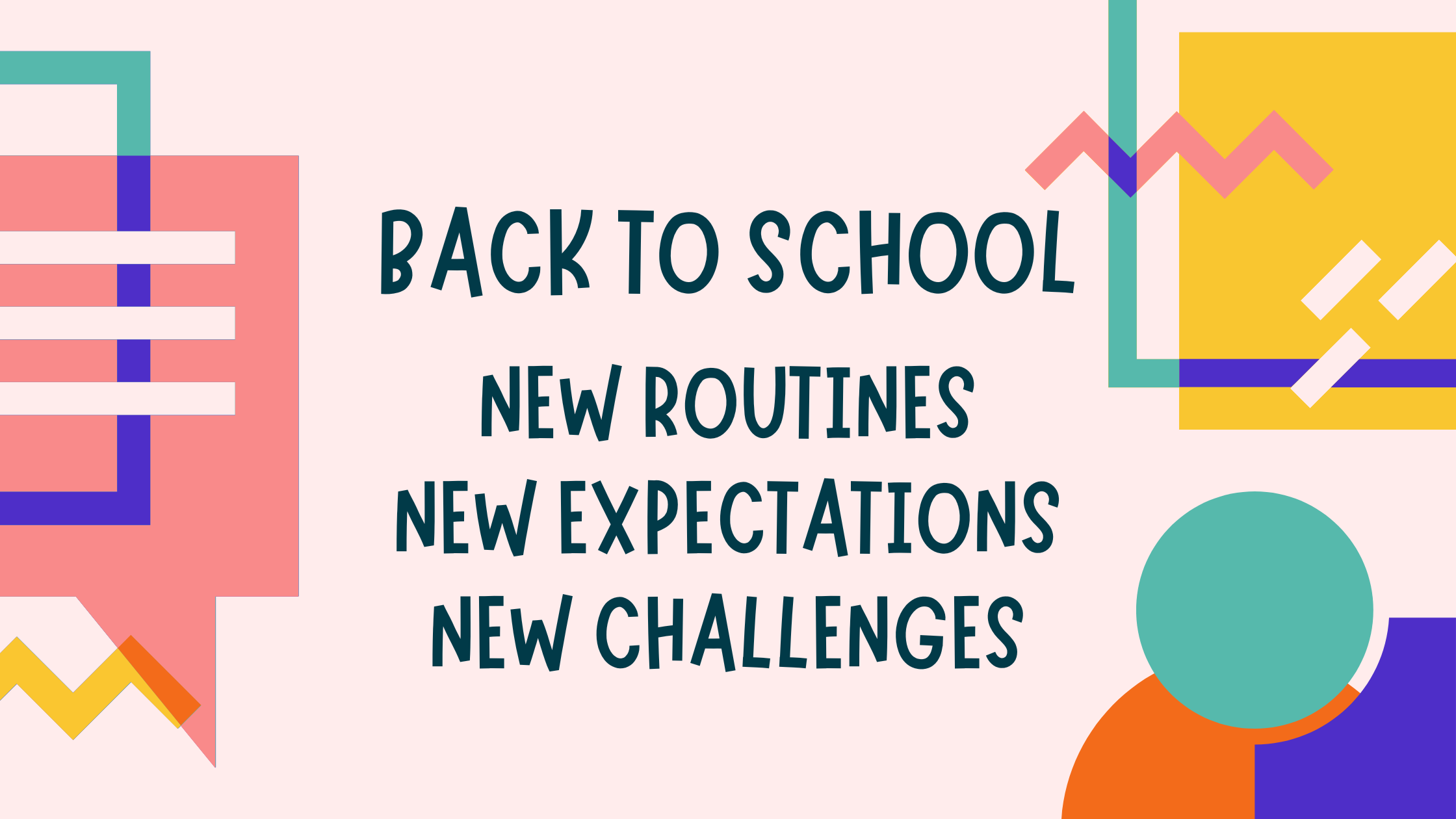Back to School. Resources for Caregivers and Students
Back to School. Resources for Caregivers and Students
As the school year begins, families are adjusting to new routines, expectations, and challenges. While backpacks, supplies, and schedules are top of mind, it’s just as important to prepare emotionally and relationally. Violence and abuse don’t follow a calendar. They affect students, parents, and caregivers year-round.
.png?width=475&height=265&name=What%20are%20ACEs_CDC%20(1).png) Adverse Childhood Experiences (ACEs) are potentially traumatizing events that happen during someone's childhood. They are wildly common with something like three in four high school students reporting experiencing at least one ACE and one in five experiencing four or more ACEs. [source]
Adverse Childhood Experiences (ACEs) are potentially traumatizing events that happen during someone's childhood. They are wildly common with something like three in four high school students reporting experiencing at least one ACE and one in five experiencing four or more ACEs. [source]
ACEs include things like abuse, neglect, or witnessing violence, having an unstable home-life or living in an unsafe community. ACEs are not often caused by a single thing. It's usually a combination of factors at the individual, relationship, community, and society level.
.png?width=475&height=353&name=What%20are%20ACEs_CDC%20(3).png) ACEs can have negative effects on a person long past their childhood. People who report experiencing ACEs have poorer health and less opportunities. They are more likely to develop a range of chronic health conditions like cancer, diabetes, depression, and heart disease. They might have less educational and job opportunities and may struggle to form healthy relationships.
ACEs can have negative effects on a person long past their childhood. People who report experiencing ACEs have poorer health and less opportunities. They are more likely to develop a range of chronic health conditions like cancer, diabetes, depression, and heart disease. They might have less educational and job opportunities and may struggle to form healthy relationships.
ACEs can have intergenerational effects. If your parents had ACEs, then it's likely you would also have some. Understanding this pattern means that families and communities can break the cycle. A lot of things that contribute to ACEs are out of your control—like community violence, discrimination, or a tough economy. However, there are protective factors that can lower your child's risk or buffer the negative effects of ACEs. Many people build resilience and thrive despite adversity due to Positive Childhood Experiences or PCEs.
One of the most powerful protective factors for children is something simple but profound: a strong, open relationship with an adult that cares. .png?width=475&height=452&name=What%20are%20ACEs_CDC%20(2).png)
Research shows that when parents and caregivers maintain honest, consistent conversations with their children, starting early and continuing through adolescence, it can significantly reduce the risk of child sexual abuse, intimate partner violence, harmful substance use, and other risky behaviors. These conversations don’t have to be perfect. What matters most is showing up, listening, and creating a safe space for kids to share what’s on their minds.
To support families during this transition into the school year, we’ve gathered a bunch of resources filled with tools, tips, and expert guidance for both caregivers and students. Whether you're looking to strengthen communication, support mental health, or build resilience, these resources are here to help.
✦ Resource Roundup
Adverse Childhood Experiences (ACEs)
🔗 About Adverse Childhood Experiences | CDC
A page describing ACEs and providing statistics
🔗 Preventing Adverse Childhood Experiences | CDC
How caregivers and community members can prevent ACEs
🔗 Risk and Protective Factors | CDC
The different factors that lead to and lead away from ACEs
Resources for Caregivers
💻 Parent Forum #41 – How to Be Your Child's Favorite Conversation Partner Free Webinar, Fri, Sep 5, 2025 at 12:00 PM | The Parent Forum
An upcoming free webinar on having good conversations with your kids. Eran Magen, PhD, parent-child communication expert, offers a timely Parent Forum on "How to Be Your Child's Favorite Conversation Partner." Join other parents and caregivers experiencing the same challenges, in an open, honest virtual discussion.
🔗 How to communicate effectively with your young child | UNICEF Parenting
Article on strengthening your relationship with your child through verbal and nonverbal communication. It recommends active listening, reflective listening, speaking clearly, avoiding bribes, explaining feelings, using 'noticing' statements, having fun together, focusing on behavior, and leading by example.
🔗 How Open Conversations With Kids Promote Healthy Relationships | Nationwide Children's Hospital
Article on fostering meaningful connections with your kid by being a good role model, create space for safe conversations, paying attention to your body language, and practicing "power with, not power over".
🔗 Conversation Tips for Connecting Conversations - Adolescent and School Health | CDC
Article with actionable tips. Helps you to prep for the conversation, offers some things to say to get the conversation started, things to say to keep the conversation going, and challenges you might face.
📃 Everyday Magic: 7 Ways Parents and Caregivers Can Help Children Affected by Family Violence | Promising Futures
The Everyday Magic brochure series is for anyone who want to strengthen their connection with their children and help them thrive, even (and especially) when their family has experienced violence. Each brochure shares 7 powerful actions to support children in a specific age group and help them feel comforted and loved. There is one set of actions for each of five age groups: 0-2, 3-5, 6-9, 10-12, and 13-18.
🔗 Back to school with mental health in mind | Mental Health America
Strategies to support your child at home and to be a mental health role model. Tips for recognizing warning signs and conversation starters for better communication. Help with navigating school supports like IEPs, 504 plans and more.
📺 Healthy Minds, Thriving Kids Project | Child Mind Institute
A series of free, evidence-based video and print resources that caregivers and educators can use to teach their kids critical mental health and coping skills.
🔗 Building Student Resilience Through Shared Resources - For Parents and Caregivers | National Association on Mental Illness
Useful insights and tools to boost your child's mental health throughout the school year. Includes warning signs for bullying and suicide, resources to help plan for crisis, a guide for working caregivers, and more.
🔗 Back to School and Mental Health: Supporting Our Children for a Successful Year Ahead | SAMHSA
Mental health info and more resources that promote mental health and preventing substance use
🔗 Screen4Success - Talk. They Hear You | SAMHSA
Learn more about Screen4Success, a user-friendly screening tool that can help you decide if your child needs more support. It provides a better understanding of personal health, wellness, and well-being and helps you find resources to address concerns.
🔗 StopBullying.gov
When adults respond quickly and consistently to bullying behavior they send the message that it is not acceptable. Research shows this can stop bullying behavior over time.
Resources for Students
🔗 Building Student Resilience Through Shared Resources - For Students | National Association on Mental Illness
Useful insights to boost your mental health throughout the year. Includes guides on setting boundaries, planners for managing commitments and time, tips for social media, and how to help a friend.
🔗 Back to school with mental health in mind - For Students | Mental Health America
Strategies for going back to school, managing overwhelming feelings, dealing with tough situations like difficulties fitting in or trouble at home, mental health warning signs, and tips on when and how to ask for help.
🔗 Resilience for teens: 10 tips to build skills on bouncing back from rough times
Resiliency is the ability to recover from hard times. Luckily resiliency skills can be learned and this article lists 10 ways you can build your resiliency.
Stats
📊 Reported Sexual Assault Statistics | worldmetrics.org 2025
📊 Child Sexual Abuse Stats | RAINN
📊 Violent Incidents by Victim and Offender Age, 2023 | Bureau of Justice Statistics
Need support now?
Call or text 988 to reach the Suicide and Crisis Lifeline
Visit thetrevorproject.org to get mental health resources and crisis support for LGBTQ+ youth
Call 1-800-588-1828 if you or someone you know is struggling with addiction in Sullivan County.
Call our hotline 570-946-4215 for free and confidential services for survivors of domestic violence, sexual violence and all other crimes 24/7.
If your safety is in immediate danger call 911.



